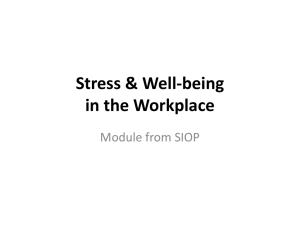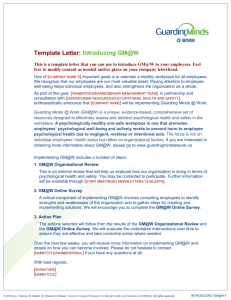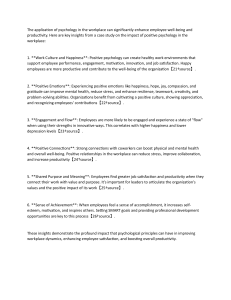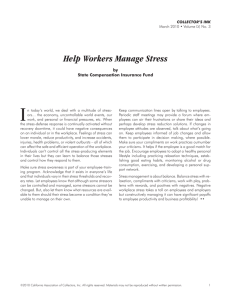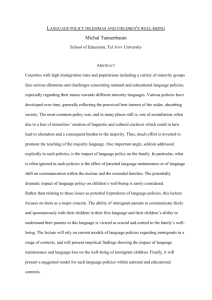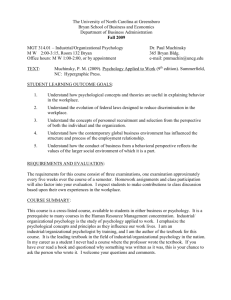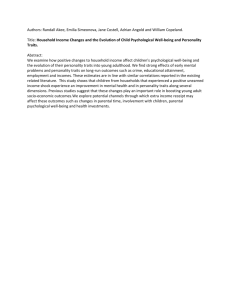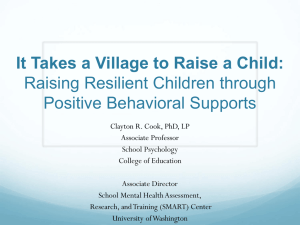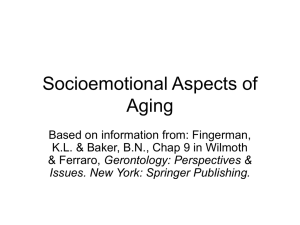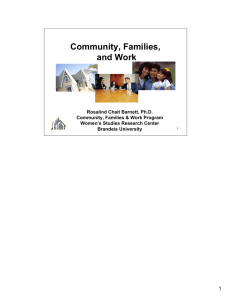Stress & Well-being at Work - Society for Industrial and
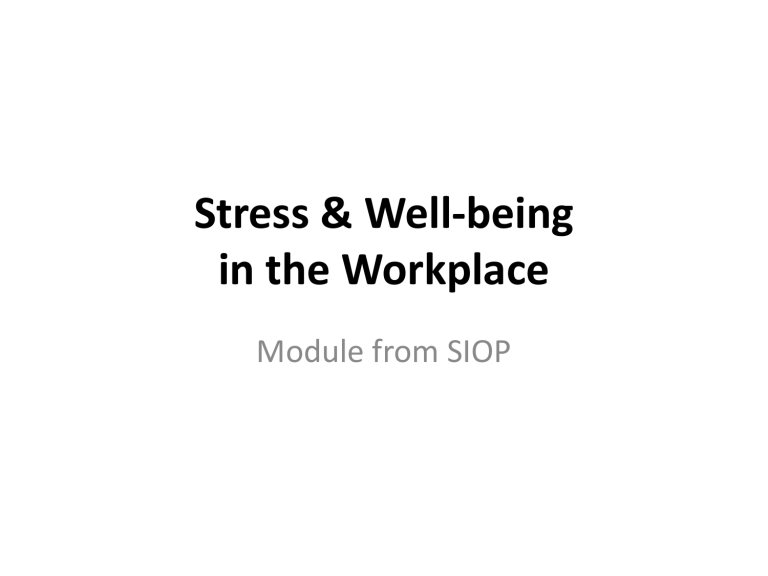
Stress & Well-being in the Workplace
Module from SIOP
A Basic Stress Process Model
Stressor
Experienced
Stress
Strain
• Stressors = stimuli that force us to adapt or change
• Experienced stress = physiological and psychological perception of “being stressed”
(e.g., faced with more demands than we think we can handle)
• Strain = threat or damage to our psychological and physical well-being
Why Relevant in the Workplace?
• Most people spend at least 1/3 of their lives at work
• This makes the workplace a dominant source of demands or stressors
• The workplace can also be a dominant source of reward and other resources that support our psychological well-being
• Unfortunately, chronic (recurring) exposure to stressors within the job environment can be really damaging over time
Stress & Well-being at Work
• Stress associated with work demands is a major health issue that can negatively impact the wellbeing of workers in any occupation.
• A good deal of research also shows that stress caused by work can spillover or crossover and have negative impacts at home (and vice versa)
• Work stress has also been linked to biological/physiological changes, attitudinal changes, and detriment to overall psychological well-being
Stress & Well-being
• As a field of study, stress and wellbeing is tremendously broad and multidisciplinary.
– It cannot be fully understood from any single perspective or orientation
• The best research and intervention efforts in this area stem from collaborations between:
– Psychologists
– Public health professionals
– Industrial hygienists
– Occupational medicine professionals, etc.
Example Topics
Work stress research is tremendously varied, with related topics including:
• Personality as a predictor of stress-reactivity
• Work environment features as causes of stress
• Work-to-family and family-to-work conflict
• Link between stress and cardiovascular disease
• Link between stress and workplace injuries
• Recovery processes associated with work stress
Class Discussion
• Have you ever worked in a job that was often
“stressful”? Why do you think it felt this way so frequently?
• What would a very high stress or low stress occupation look like to you?
• What strategies do you use currently to manage the stress you feel related to your work as a student? Do you think these same strategies will work for you once you are in a full-time job outside of school?
Further Reading & Resources
• Society for Occupational Health Psychology: http://www.sohp-online.org
• Sonnentag, S., & Frese, M. (2003). Stress in
Organizations. In W. C. Borman & D. R. Ilgen
(Eds.), Handbook of psychology: Industrial and
organizational psychology (Vol. 12) (pp. 453-491).
New York: John Wiley & Sons.
• Viner, R. (1999). Putting Stress in Life: Hans Selye and the Making of Stress Theory. Social Studies of
Science, 29(3), 391-410. doi:10.1177/030631299029003003
